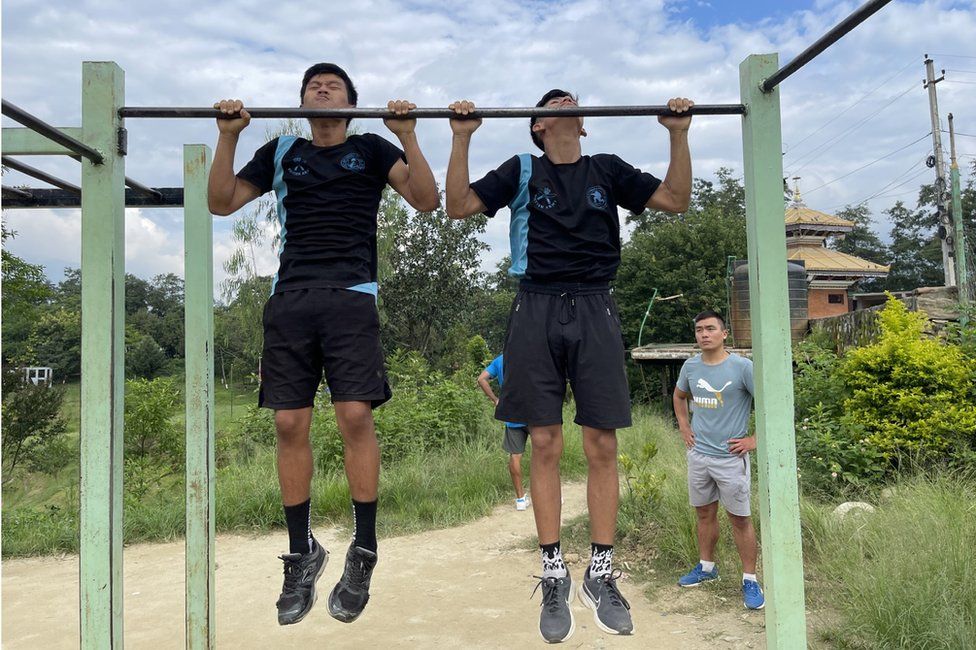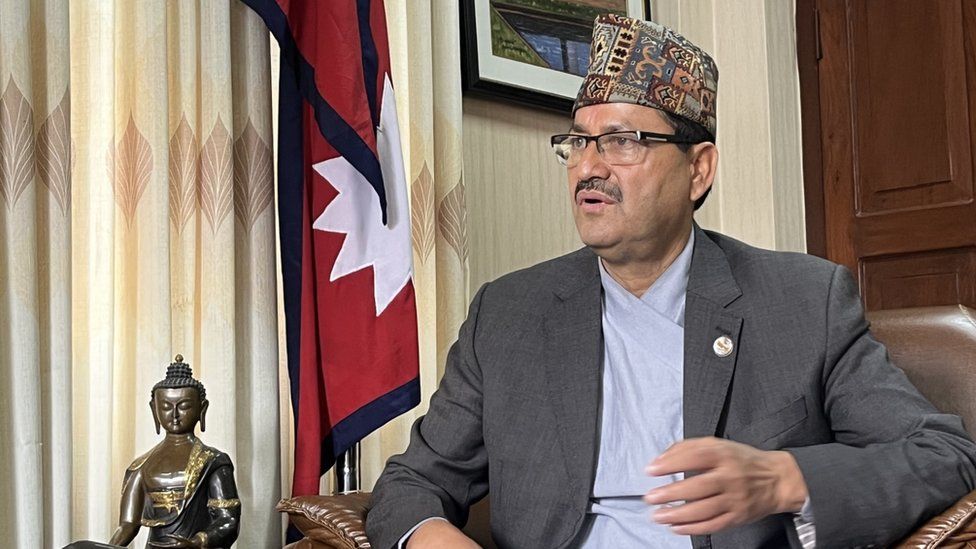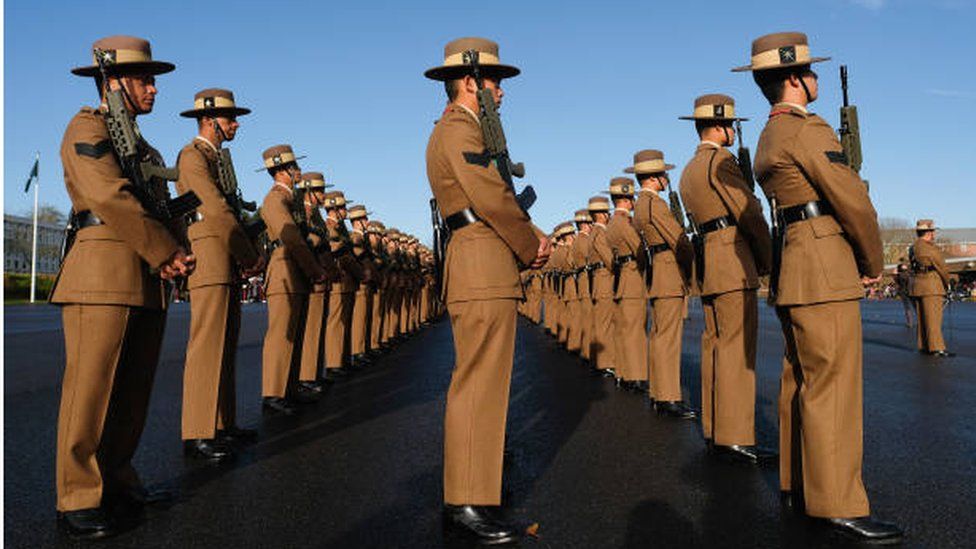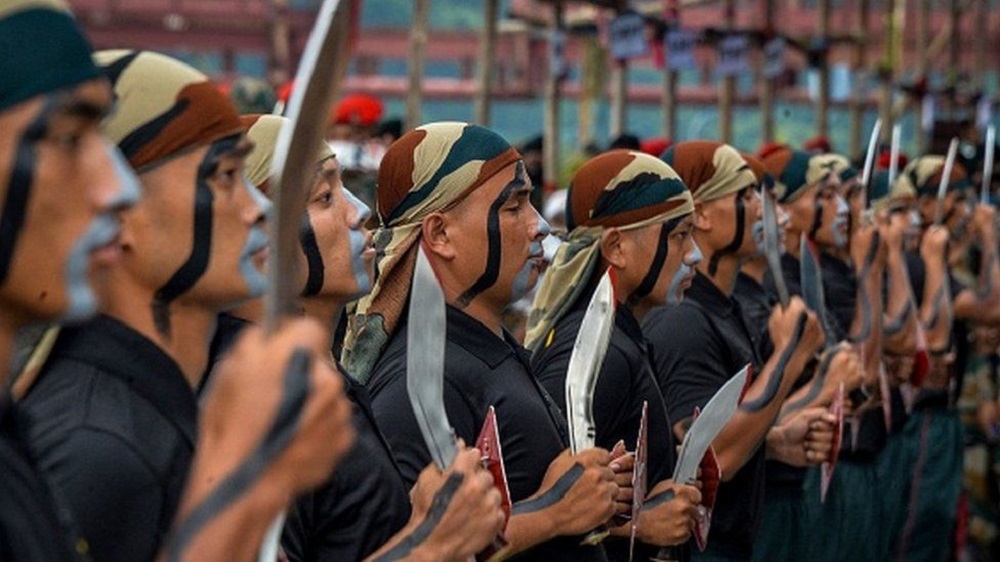For decades, Nepal has allowed its ethnic Gurkha soldiers to join the Indian army under a special agreement. The practice came to an abrupt halt last year after India introduced a controversial new army hiring plan, straining ties between the two neighbouring countries. The BBC’s Anbarasan Ethirajan reports.
The Gurkhas, famed for their ferocity and bravery, have fought several wars over the decades for both the Indian and British armies.
They were first recruited by the British East India company in 1815 following a peace deal with Nepal.
After the end of colonial rule in 1947 a tripartite agreement between Nepal, India and Britain allowed Delhi and London to continue to recruit Gurkhas to their military.
But the arrangement with Delhi came to a halt last year after the Indian government announced Agnipath, a new hiring scheme for its soldiers.
Agnipath, or Path of Fire, hires soldiers on a fixed four-year term. Only a top performing 25% will be retained for India’s central security forces. The rest will be allowed to leave with a lumpsum amount of nearly $15,000 (£11,915) without pension or any other career benefits.
The rules also apply to the Gurkha soldiers who have historically served for much longer terms in both the Indian and British armies.

Nepali officials say they were taken aback by Delhi’s abrupt decision, as they were neither informed nor consulted on such a crucial change to the military recruitment programme.
“We have a policy that if there is any change made to a tripartite treaty, then it should be implemented through a political consensus,” Nepalese Foreign Minister NP Saud told the BBC, adding that the recruitment of Gurkhas would be postponed for now.
With most Nepalese political parties stoutly opposed to the change, it has become even more difficult for the current government to reach a consensus.
“We are not going to accept the new plan. If India is ready to revert back to the older Gurkha recruitment process, then it can be resumed,” Pradeep Kumar Gyawali, a senior leader of the main opposition Communist Party of Nepal (UML) told the BBC.
Prior to the new scheme, India on average recruited about 1,400 Nepali citizens into its Gurkha regiments every year.
There are about 35,000 Nepali Gurkhas currently serving in the Indian army, including in the geopolitically sensitive region of Indian-administered Kashmir and the northeastern parts of the country.
Delhi argues that the new hiring plan will reduce its army expenditure on ballooning salaries and pensions, which consume more than half of its defence budget. The short-term contracts will also lower the average age of its 1.3 million-strong armed forces.

For Nepal, this raises fears of a heightened risk from insurgents.
“There is a danger that a person with four years of military combat training can be recruited by any insurgent group in the country or even by foreign mercenaries,” said Prem Singh Basnyat, a Nepalese military historian and a retired army officer.
Nepal suffered heavily due to a decade-long armed rebellion by Maoists that ended in 2006. Thousands of people were killed during the unrest. The country says it is not in a position to offer employment to all those who return from India.
There have been calls in India as well to exempt the Nepali Gurkhas from the short-term contracts.
Maj Gen (Retd) Ashok Mehta, who served in the Indian Gurkha regiment, says the Agnipath scheme could complicate Delhi’s ties with Kathmandu.
“The Indian government abrogated its responsibility in following diplomatic niceties, especially with a country like Nepal with which it claims special and unique relationship,” he said.
Indian officials have hinted that if Gurkhas from Nepal do not take up short-term contracts, then the jobs could be distributed to others in India for the time being.
The BBC has reached out to India’s foreign ministry for comment.

Experts say the move could further alienate Kathmandu, which already feels aggrieved by recent Indian actions.
Nepal was furious in 2019 when India published a map, including some of the areas claimed by Kathmandu in the western region, close to the border with China.
The diplomatic wrangle escalated after Nepal also published its own map including those disputed areas.
A few years before the map controversy, the ethnic Madhesi community in Nepal had blocked goods traffic from India as part of its 2015 protests for more rights. Though India denied it was behind the economic blockade, very few people in Nepal believed the denial.
In a playground outside Kathmandu, an instructor was making dozens of young men go through their paces as part of a training programme for the forthcoming Gurkha recruitment to the British army.
Some of them, like Aneesh Thapa Magar, 19, were hoping to join the Indian military – as many of his relatives did.
“The Agnipath programme is of no use to us. After four years, we will return home without knowing what to do next. That’s why I am now practising hard to get selected for the British army,” Mr Magar says.

The Gurkhas have a strong bond with the Indian military, and Gurkha regiments have become part of the culture of the Nepali hill communities.
There are about 120,000 Indian Gurkha veterans living in Nepal. Their pension and other benefits have contributed to the economy of the impoverished hill regions.
Despite the stiff opposition, not everyone is resistant to the new hiring scheme. Nepalese Indian Gurkha veterans like Laxmikant Pandey argue that the Agnipath scheme has its advantages and should not be rejected outright.
“The scheme offers a lumpsum amount at the end of the tenure and the Indian military experience will open up many other opportunities in Nepal and abroad,” he said.
The best option, he suggests, is to open up a dialogue with Delhi to get more concessions.
In the meantime, the first batch of Indian soldiers who signed up for the Agnipath scheme have joined the army, after completing their training courses in the first week of August.
Source : BBC News


